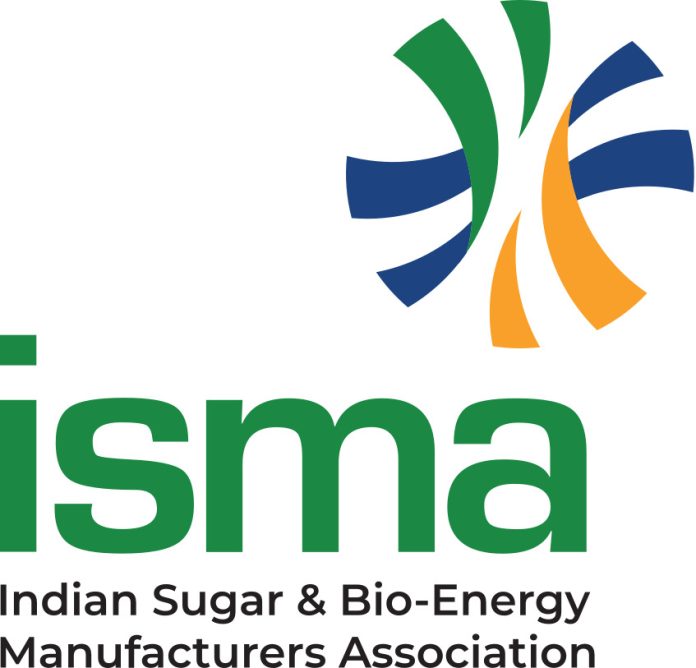The Indian Sugar & Bio-energy Manufacturers Association (ISMA) has submitted its recommendations for the ‘Roadmap for Ethanol Blending Beyond 2025’ during the second Inter-Ministerial Committee (IMC) meeting on November 30, 2024.
The apex body emphasized a collaborative approach that integrates policy support, private investments, and technological innovation to enhance India’s energy security and meet future demands effectively.
India’s Ethanol Success Story
Over the past decade, India has made remarkable strides in its ethanol journey, establishing itself as a global leader in biofuels. From 2014 to 2024, ethanol production capacity grew fourfold, driven by a 90% increase in the number of distilleries.
Investments of approximately ₹40,000 crore fuelled this expansion, contributing significantly to the nation’s energy and environmental goals:
- Emission Reduction: India reduced 50 million tonnes of CO2 equivalent emissions, achieving 4–5% of its Nationally Determined Contributions (NDCs) annually.
- Crude Oil Substitution: Ethanol blending replaced 18.1 MMT of crude oil, saving ₹1.1 lakh crore in foreign exchange.
- Economic Boost: Ethanol production provided new income opportunities for over 55 million farmers while occupying just 2.8% of India’s cropped area.
Advancing Ethanol Blending Targets
India has accelerated its E20 target to 2025 from the earlier goal of 2030. To support this, over 17,000 retail outlets now dispense E20, and 400 pumps cater to E100 fuels.
Demand for ethanol blending is projected to surge from 1,127 crore liters in 2025–26 to 2,994 crore liters by 2034–35, necessitating significant capacity expansion.
Through the Global Biofuels Alliance, India continues to advocate for the adoption of biofuels worldwide.
Strategic Recommendations by ISMA
ISMA’s roadmap for ethanol blending beyond 2025 focuses on three critical pillars: demand-side incentives, supply-side support, and comprehensive carbon accounting. Key recommendations include:
- Interest Subvention: Allocate ₹35,000 crore in subsidies to add 770 crore liters of ethanol production capacity.
- Tax Reforms: Reduce GST to 5% for Flex-Fuel Vehicles (FFVs) and establish differential pricing for ethanol fuels.
- R&D Investments: Promote 2G ethanol production, Sustainable Aviation Fuels (SAF), and ethanol-to-hydrogen conversion.
- Pricing Mechanism: Link ethanol prices to the Fair and Remunerative Price (FRP) of sugarcane.
- Infrastructure Development: Set up ethanol pumps and create “Bio Hubs” near sugar mills.
Promoting Advanced Technologies
ISMA advocates adopting advanced technologies to complement ethanol use.
These include expanding Flex-Fuel Vehicles (FFVs) and Hybrid Electric Vehicles (HEVs) and increasing the availability of E100 hydrous ethanol. Such measures can enhance energy efficiency and accelerate carbon emission reductions.
Learning from Brazil
Brazil’s success with an average ethanol blending rate of 54% serves as a benchmark for India.
ISMA recommends replicating Brazil’s model of systemic regulation, production incentives, and carbon credits to achieve similar outcomes.
Establishing Bio Hubs
To drive the green transition, ISMA proposes setting up bio-hubs near sugar mills. These hubs would integrate ethanol production with other renewable initiatives, such as bioelectricity, biofertilizers, and biogas production.
This approach ensures efficient resource utilization, fosters a circular economy, and supports a sustainable future.
Ethanol as a Catalyst for Growth
“Ethanol is not just a fuel; it is a transformational solution,” said ISMA Director General Deepak Ballani.
He highlighted the role of ethanol in transitioning Indian farmers from being “Annadatas” (food providers) to “Urajaadatas” (energy providers). With current ethanol capacity at 1,683 crore liters, scaling up to 2,362 crore liters by 2030–31 is vital.
As per the press release, by embracing a comprehensive strategy that includes policy support, private investments, and technological innovation, India can position ethanol as a cornerstone of its sustainable and inclusive growth journey.

































